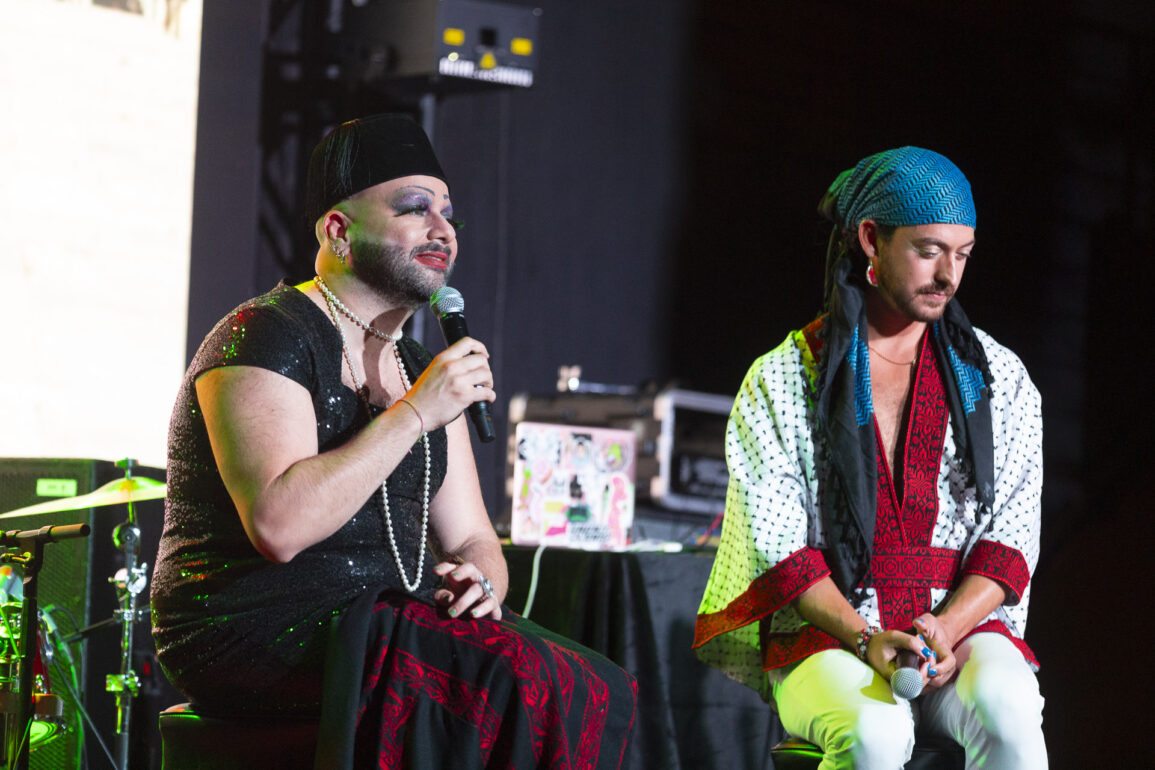“This is occupied land,” said Palestinian American poet Mx. Yaffa, an organizer at the Muslim Alliance for Sexual and Gender Diversity. “This has been Palestine for over 400 years.”
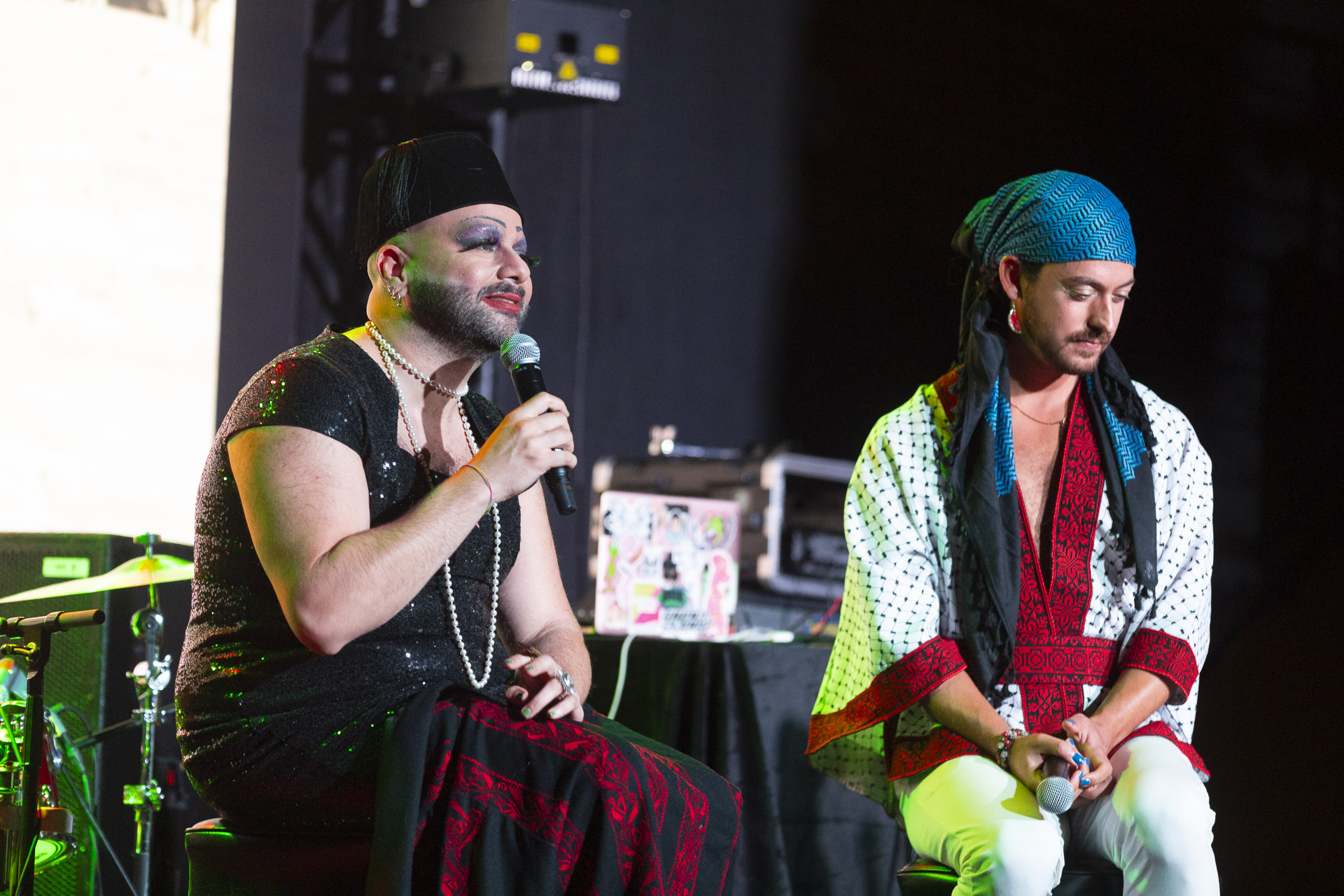
“The state that is capitalizing on the killing and imprisonment of Black people is capitalizing and benefiting on the killing of the Palestinian people as well,” said Oakland experimental musician Aroma, who organized the For Palestine fundraiser with Barance and fellow musician Astu. “The apathy towards their death and their pain and their outcries, the gaslighting that they experience … I feel like I resonate with that as a Black person.”
On the screen behind performers, photos flashed of Bay Area protesters holding signs of Mexican, Ukrainian and Jewish solidarity with Palestinians. Barance, who is Palestinian American, said she’s never seen so much multicultural support for Palestinian rights until this month. “We always say people are liberal until it comes to Palestine,” she said of people’s reluctance to comment on the issue.
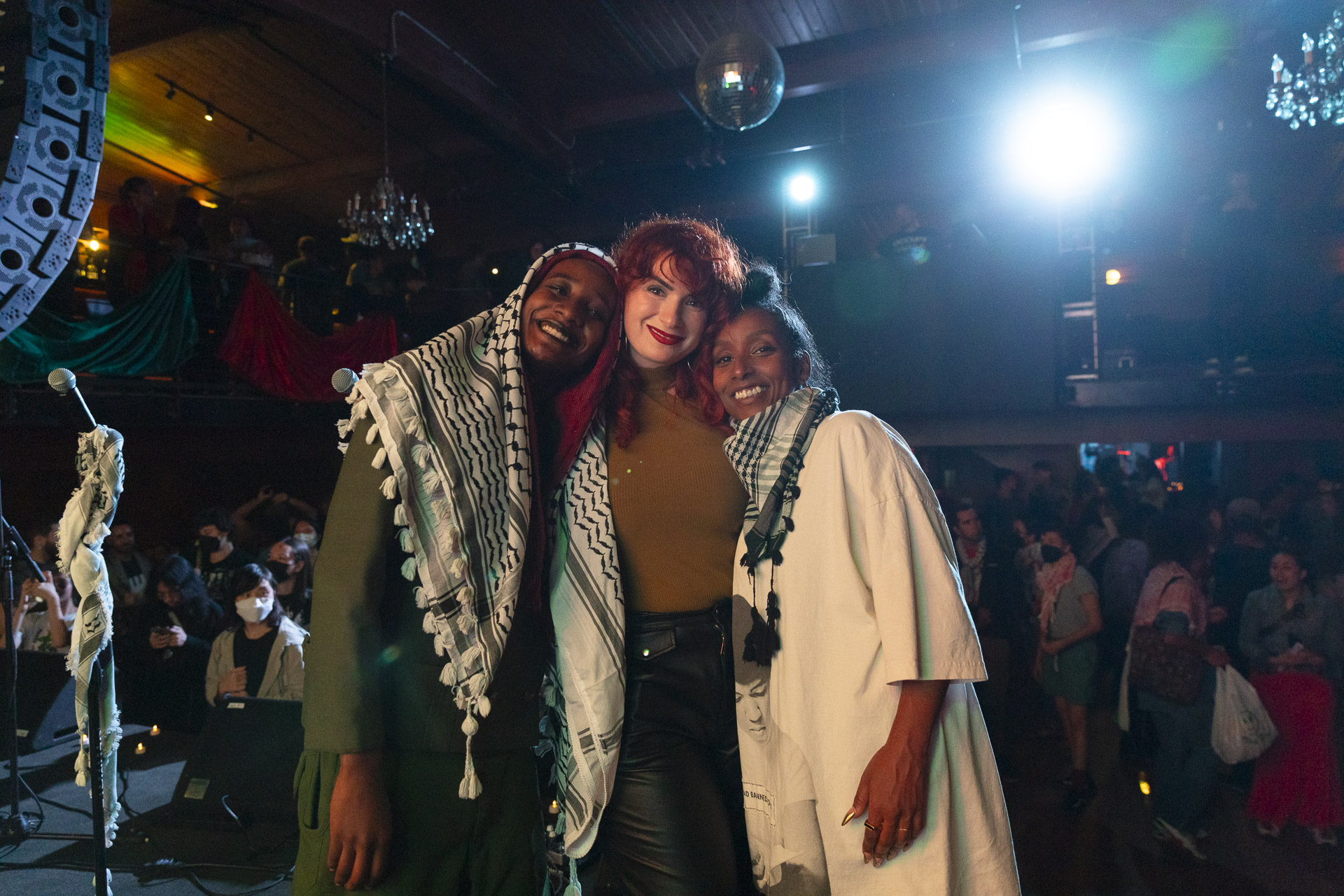
Indeed, mainstream American media has long described Israel’s blockade of Gaza and occupation of the West Bank as a conflict with two equal sides. Human rights groups, meanwhile, have warned that Israel’s systemic displacement, segregation and restriction of voting rights of Palestinians amounts to apartheid. Human Rights Watch has called Gaza “Israel’s open-air prison” due to poor living conditions and heavy travel restrictions, and since Oct. 7, Israel has blocked aid and cut off electricity and internet access in Gaza.
After Oct. 20, when President Biden called for $14.3 billion in aid to Israel, many Americans have spoken out against U.S. support for the Israeli military. (Cumulatively, Israel has received more U.S. assistance than any other country since World War II.)
“The more people know, the less uncomfortable they feel about talking about it, knowing that it’s not about a political issue, but about our human rights,” Barance said.
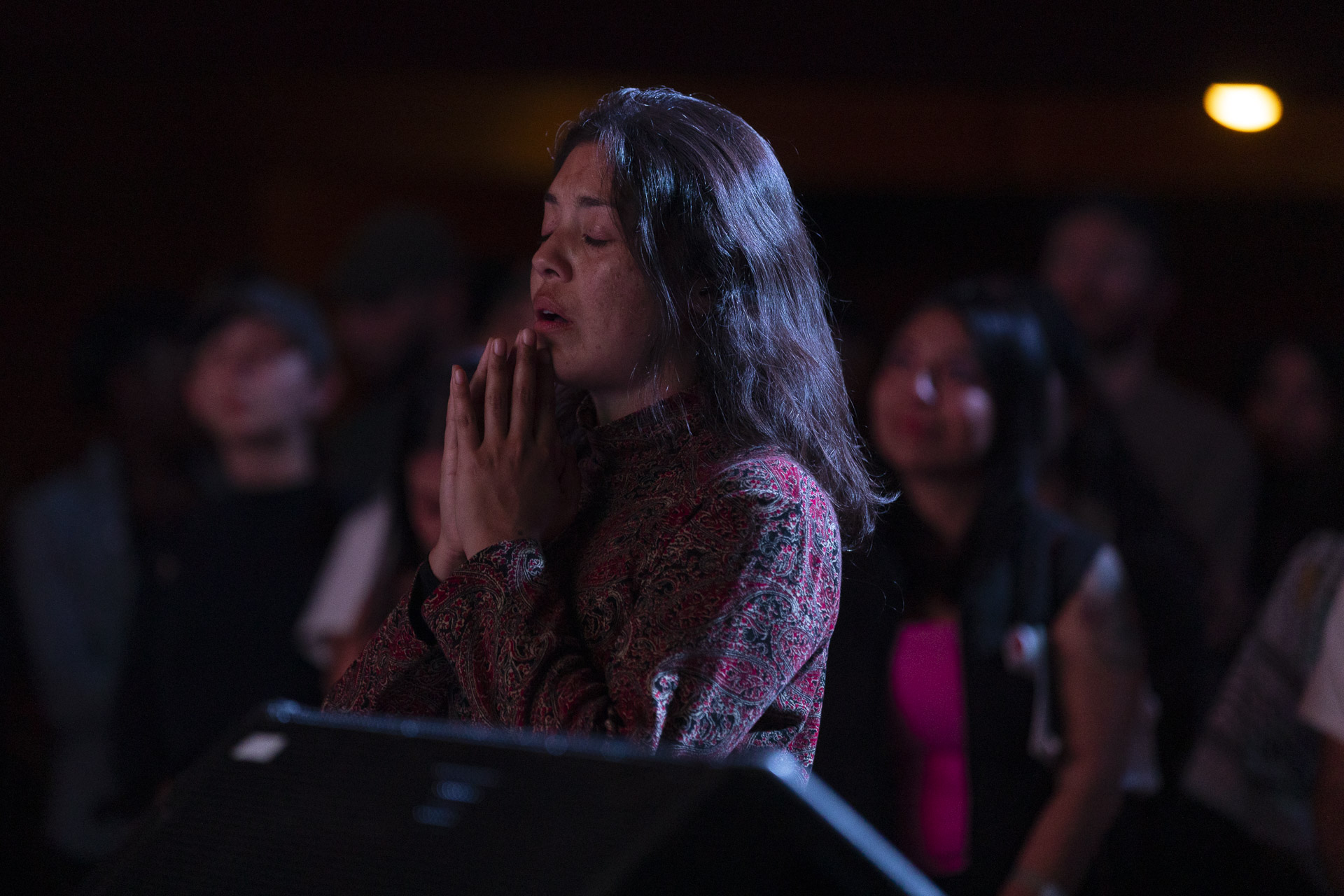
At Continental Club, Palestinian American drag performer Mama Ganuush shared appalling details from their family history, detailing how Israeli settlers murdered their father’s siblings in the 1940s. “The Minister of Defense of Israel called Palestinians ‘human animals’ two weeks ago,” said Mama Ganuush, imploring the audience to call their representatives and advocate for a ceasefire in Gaza. “This is what the Nazis called Jewish folks.”
Grief was heavy in the air at times throughout the event, but there was also hope and solidarity in the room. “The posts are great, calling Congress is great, but we have to go here,” Astu said on stage during her performance, gesturing to her heart. “Most of us come from genocide, and we just have been brainwashed to forget.”
To bring the energy up, poet Sarah O’Neal led the audience in a chant she learned in 2014 after protesting Mike Brown’s killing in Ferguson, Missouri: “We must love each other and protect each other. We have nothing to lose but our chains. I believe that we will win.”
As the evening came to a close, headliner Sammy Shiblaq, a Palestinian American rapper signed to EMPIRE, ended the night with a message of unity. “It’s about all of us,” he said. “We can’t just focus on one group of Palestinians. It’s the Muslim, the Christian, the Jewish Palestinians that no one talks about. … We love the Jewish people — we don’t like what’s going on. We don’t like that Zionism has taken over the name of the Jewish people.”
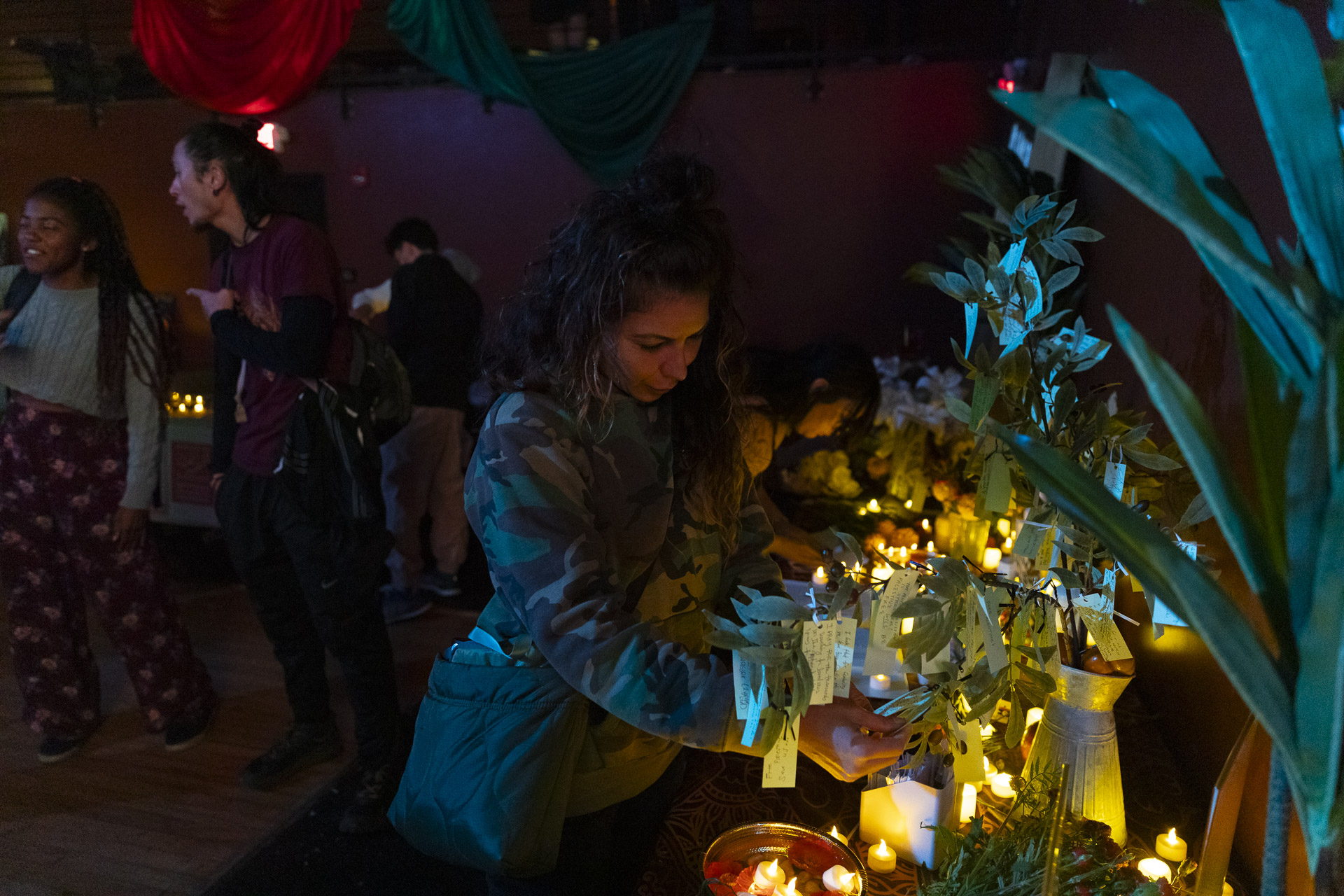

This post was originally published on this site be sure to check out more of their content.



